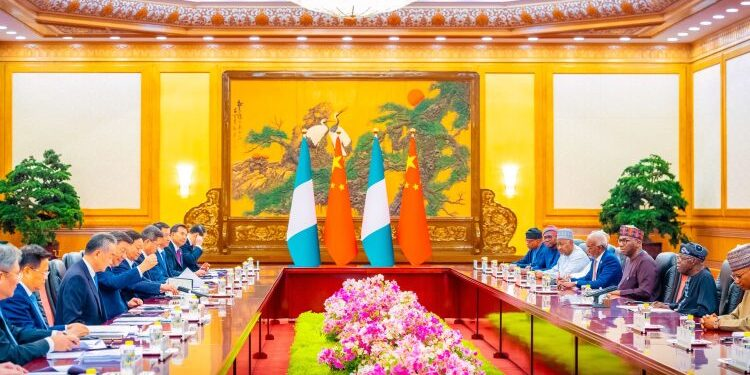China trade relations have become a focal point in recent discussions about Canada’s economic future, especially in light of the heightened tensions with the United States. Liberal candidate Majid Jowhari, representing the rich diversity in Richmond Hill, argues for strengthening trade ties with China amidst the current trade war challenges. He contrasts sharply with party leader Mark Carney, who has labeled China as Canada’s primary security threat. This divergence highlights the complex dynamics of Canada China trade and the broader geopolitical landscape. In an era where economic interests are often intertwined with security concerns, navigating these relationships is crucial for maintaining Canada’s economic stability.
The economic partnership between Canada and China has garnered significant attention as the two nations navigate a multifaceted relationship marked by both opportunities and challenges. Amidst increasing discourse around national security and trade imbalances, figures like Majid Jowhari are advocating for stronger economic collaboration with China, emphasizing its importance for Canadian businesses. This dialogue is further complicated by concerns about potential Chinese influence within Canadian borders and the ongoing discussions around Canada’s strategic positioning on the global stage. As the Liberal campaign gains traction, these varying perspectives on economic engagement with China reveal the delicate balance required in fostering international trade relationships.
Strengthening Canada-China Trade Relations
Amidst the ongoing trade tension between Canada and the United States, enhancing Canada-China trade relations has emerged as a pressing topic. Liberal candidate Majid Jowhari advocates for a deeper connection with China, emphasizing that solid alliances with key trading partners are necessary to navigate the complexities of global trade. This perspective challenges the prevalent narrative regarding China as a security threat and opens up dialogues on how trade can potentially benefit both economies. With significant contributions from the Chinese-Canadian community in Richmond Hill, Jowhari’s call for collaboration underscores the importance of diverse voices in fostering stronger economic ties.
The interplay between trade policy and national security continues to shape the discourse around Canada-China relations. As Mark Carney remarks on China being Canada’s primary security threat, Jowhari’s assertion that China is a ‘like-minded ally’ casts a different light on the conversation. This divergence highlights the need for a balanced approach, where economic interests are evaluated alongside security concerns. Moving forward, it is vital for policymakers to consider the broader implications of their strategies as they negotiate trade relations with China, ensuring that Canada remains a constructive participant in the global market.
Liberal Party Dynamics and China
The Liberal Party’s internal dynamics regarding China have sparked considerable debate within Canadian politics. As Majid Jowhari positions himself as an advocate for stronger ties with China, his views starkly contrast with the leadership of Mark Carney, who sternly identifies China as a security threat. This rift illustrates varying ideologies within the party about how to approach complex international relationships, especially with a nation often criticized for its influence operations abroad. Jowhari’s challenge is to navigate these differences while appealing to constituents who value robust trade relations with China, particularly in regions with significant Chinese populations.
As Canada approaches its federal elections, the Liberal Party must confront the complicated narrative surrounding its candidates and their connections to China. Controversies surrounding candidates’ previous engagements and affiliations have raised questions about the party’s positioning in the eyes of voters. Balancing the opportunity for greater China engagement with the necessity for national security is fragile. Ultimately, the party needs to clearly communicate its stance on China to gain the trust of voters and to reassure Canadians that they are prioritizing both economic prosperity and national security.
The Role of Asian Communities in Trade Discussions
Asian communities in Canada, particularly those of Chinese descent, play a crucial role in shaping the nation’s trade policies and relationships. Candidates like Majid Jowhari focus on advocating for these communities, highlighting their contribution to economic growth and cultural diversity. The push for stronger trade ties with China is not only an economic strategy but also a reflection of the aspirations and sentiments of these communities. Recognizing their voices in discussions around Canada-China relations could lead to innovative policies that foster inclusivity and economic benefits.
Moreover, the representation of Asian Canadians in political discussions is essential to address issues such as anti-Asian racism, which has become increasingly prevalent. As lawmakers like Jowhari participate in these conversations, it becomes imperative to align trade initiatives with the interests of Asian communities. Engaging in trade discussions that acknowledge and incorporate the perspectives of these communities will not only strengthen Canada’s economic framework but also enhance social cohesion and mutual understanding across diverse ethnic groups.
International Perceptions of Canada’s Stance on China
As Canada navigates its international relations, the perception of its stance on China is pivotal. While the threat posed by China’s influence operations raises alarms among policymakers, there is also the pressing need to consider economic opportunities. Mark Carney’s acknowledgment of China as a security threat creates a perception of caution towards engaging with the nation, while voices like Jowhari’s suggest a more collaborative approach. Balancing these narratives is essential for Canada’s global reputation, as how the country handles its relationship with China may resonate in other international arenas, impacting trade negotiations globally.
Additionally, the tension between trade interests and security concerns manifests internationally, with allies observing Canada’s approach. Countries like the United States, which prioritize national security over trade relations, may view Canada’s more conciliatory stance towards China with skepticism. Therefore, as Canada strives to position itself as a partner in global trade, it must also reassure its allies of its commitment to maintaining national security. The effectiveness of Canada’s diplomatic strategies will ultimately shape its foreign policy and economic relationships across the globe.
Market Opportunities in Canada-China Relations
The dynamic of Canada-China relations brings forth significant market opportunities, especially in sectors like technology, natural resources, and education. Liberal candidate Majid Jowhari’s emphasis on fostering ties with China outlines a path to tapping into vast Chinese markets, which could lead to enhanced economic growth for Canada. China’s growing middle class presents numerous possibilities for Canadian products and services, from agricultural exports to technological innovations. By prioritizing partnerships that leverage these opportunities, Canada can position itself as an attractive destination for investment and collaboration.
However, harnessing these market opportunities requires astute strategic planning alongside rigorous trade agreements that ensure fair practices are upheld. The divergence in views within the Liberal Party—particularly between Carney’s security concerns and Jowhari’s trade optimism—highlights the complexities of pursuing economic goals while addressing potential risks. Developing a coherent strategy that addresses both market growth and security considerations is essential as Canada aims to elevate its position in the global market through enhanced Canada-China trade relations.
Disinformation and Influence Campaigns
The influence of disinformation campaigns from countries like China has become a hot topic in the context of Canada’s national security and political integrity. Reports from the Security and Intelligence Threats to Elections (SITE) task force illustrate the extent to which these operations aim to sway public opinion and interfere with democratic processes in Canada. The ramifications of these campaigns create apprehension about potential foreign interference in local elections, challenging candidates to adopt robust strategies to combat misinformation while still advocating for trade relations with China.
Navigating the landscape of disinformation while fostering trade relationships represents a delicate balance for Canadian politicians. Liberal candidates, like Jowhari, must address concerns regarding foreign influence while promoting policy initiatives that could benefit Canadian businesses through enhanced trade. By actively working to dispel myths and misinformation surrounding China, Canadian politicians can create a more informed electorate, empowering citizens to engage thoughtfully in discussions about foreign policy and trade while protecting the integrity of the democratic process.
Cultural Immersion and Community Outreach
Cultural understanding is key to building robust Canada-China relations, and elected officials play an important role in this aspect. Majid Jowhari’s advocacy for the Chinese-Canadian community emphasizes the importance of cultural immersion as a way to recognize and value the contributions of immigrant populations in Canada. By promoting initiatives that foster cultural exchange and inclusivity, Jowhari not only positions himself as a representative for the community but also highlights the importance of understanding the cultural nuances that can underpin successful trade relations with China.
Incorporating community outreach programs can serve as a bridge to enhance broader societal engagement with the significance of Canada-China relations. These initiatives could facilitate dialogue between different cultural groups, promote understanding, and address any misconceptions regarding trade. Additionally, involving young leaders from various communities in these discussions can ensure a fresh perspective on how to approach Canada-China relations going forward, further enriching the potential for mutually beneficial partnerships.
The Future of Canada’s Trade Policy
The evolving landscape of global trade necessitates a re-evaluation of Canada’s trade policy, especially regarding China. As various trade agreements and partnerships evolve, Canadian policymakers must consider the implications of their approach on future relations. Developing a balanced trade policy that accounts for both security concerns and economic opportunities is crucial. Liberal candidates like Jowhari represent a growing recognition that fostering trade relationships requires not only an understanding of economic benefits but also addressing the intricacies of national security.
Looking forward, Canada must adapt its trade policies to reflect not only the realities of a global economy but also the dynamic nature of its relationship with China. These adaptations could involve recalibrating trade agreements, enhancing security measures, and ensuring that the dialogue remains open and constructive. By prioritizing a comprehensive trade policy that embraces both growth and security, Canada can position itself advantageously in the global economy while safeguarding its national interests.
Frequently Asked Questions
How do Canada-China trade relations affect Canadian businesses?
Canada-China trade relations are crucial for Canadian businesses as they provide access to one of the largest consumer markets in the world. Enhancing trade ties with China can lead to increased exports in various sectors, helping Canadian companies bolster their bottom lines.
What are the current challenges in Canada-China trade relations?
The current challenges in Canada-China trade relations stem from geopolitical tensions, accusations of espionage, and tariffs imposed during trade wars, particularly with the United States. These factors create an uncertain environment for trade, impacting Canadian exporters and importers.
What stance has the Liberal candidate regarding China as a trade partner?
Liberal candidate Majid Jowhari has emphasized the importance of strengthening Canada-China trade relations, asserting that bolstering partnerships with countries like China is vital for shared prosperity, especially amid trade conflicts with the United States.
How does Mark Carney view China in relation to national security and trade?
Mark Carney, the Liberal Leader, has expressed concerns over national security, labeling China as Canada’s biggest security threat. His views contrast with other party members who advocate for improved Canada-China trade relations, highlighting the complex balance between security and economic partnerships.
In what ways can Canada benefit from improving trade relations with China amidst the trade war?
Improving trade relations with China can provide Canada with new markets for its goods, reduce reliance on the U.S. market, and diversify its trade partnerships. This includes opportunities for collaboration in technology, agriculture, and resource sectors that are vital for Canada’s economy.
What recent developments have arisen in the context of Canada-China trade relations?
Recent developments include political shifts where Liberal candidates advocate for stronger ties with China, juxtaposed against security warnings from national intelligence agencies. This ongoing discourse reflects the significant and sometimes conflicting views on trade relationships with China in Canadian politics.
How do Canadian citizens perceive the trade relationship with China?
Canadian citizens have mixed views on the trade relationship with China, with some supporting the economic benefits while others express concerns over human rights issues and national security. This dichotomy influences political discourse and electoral campaigns surrounding Canada-China trade relations.
Why is it important for candidates like Majid Jowhari to advocate for the Chinese-Canadian community?
Advocating for the Chinese-Canadian community is important for candidates like Majid Jowhari in order to ensure representation and to strengthen trade relations with China. This advocacy helps address the needs and concerns of a significant demographic while promoting economic partnerships.
What role does disinformation play in shaping Canada-China trade relations?
Disinformation plays a significant role in shaping perceptions of Canada-China trade relations, with claims of influence campaigns and narrative control by the Chinese government affecting public opinion and political action. This highlights the complex interplay between information warfare and economic partnerships.
How might the future of Canada-China trade relations evolve given current political sentiments?
The future of Canada-China trade relations may evolve based on political sentiments regarding security threats and economic opportunities. As tensions fluctuate, the government’s ability to negotiate and foster positive trade relations will be essential for mutual benefit.
| Key Points | Details |
|---|---|
| Liberal Candidate’s Stance | Majid Jowhari, a Liberal candidate, calls China a ‘like-minded ally’ and advocates for stronger trade relations. |
| Liberal Leader’s Position | Mark Carney identifies China as the biggest security threat to Canada, contrasting with Jowhari’s view. |
| Trade Relations Importance | Jowhari emphasizes the importance of protecting trade ties with China amidst U.S. trade conflict. |
| Anti-Asian Racism Advocacy | Jowhari highlights his work against anti-Asian racism and advocates for the Chinese-Canadian community. |
| Concerns Over Security | Canada’s national security agencies report China as a serious threat, raising concerns about influence operations. |
| Electoral Interference | Reports suggest that the PRC is involved in influencing public opinion and manipulating information in Canada. |
Summary
China trade relations have become a pivotal topic as Canada navigates its position in the global economy. The recent statements by Canadian political figures highlight a growing divide in opinions about how to engage with China. While some view China as an essential trade partner that can enhance economic opportunities, others caution against potential security threats posed by increased Chinese influence. As Canada approaches the election, understanding the nuances of China trade relations will be vital for the electorate in making informed decisions.



